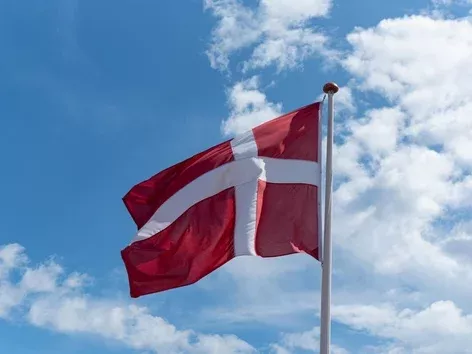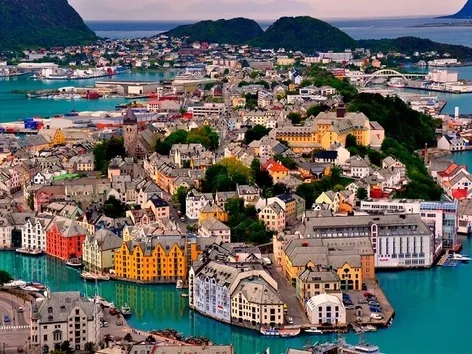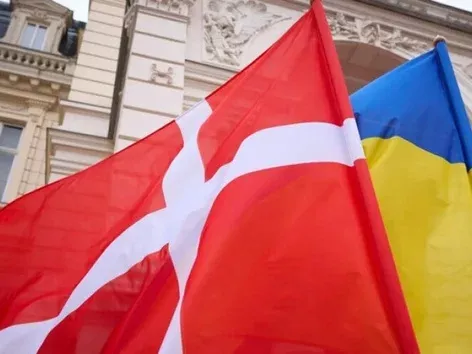Denmark for Ukrainians: emigration, visa requirements and work permits
- How to travel to Denmark from Ukraine: types of visas
- What documents are required to apply for a visa to Denmark?
- How to travel to Denmark: stages of preparation and obtaining a visa
- Life in Denmark for Ukrainians: types of residence permits
- How can Ukrainians obtain Danish citizenship?
- Work permit in Denmark: the nuances of applying for a work visa

Denmark is one of the most attractive countries for emigration, offering a high standard of living and social security. The process of obtaining a work permit requires taking into account certain nuances and documentary requirements. Learn more about emigration to Denmark, visa requirements and employment conditions
Emigration to Denmark is a rather complicated process that requires careful planning and awareness of all legal nuances.
How Ukrainians can move to Denmark in 2024, which visa to choose, the necessary documents and everything emigrants need to know - read on.
How to get to Ukraine from Denmark in 2024, convenient routes and entry rules - read here.
How to travel to Denmark from Ukraine: types of visas
In 2024, the rules for applying for a visa to Denmark are still subject to the general requirements of the Schengen area, as Denmark is a member of it. It is important to note that Ukrainian citizens do not need a visa to enter Denmark for tourist purposes. They can stay in the country for up to 90 days within 180 days from the date of first entry.
However, for a longer stay in the country, a visa is required. Here are the main types of visas for travelling to Denmark.
Short-term Schengen visa (category C)
- Tourist visa: for short-term trips for tourism, sightseeing, and recreation.
- Business visa: for business meetings, conferences, seminars, negotiations with Danish partners.
- Private visit visa: for visiting friends or relatives living in Denmark.
- Cultural, sporting or scientific trips: to participate in festivals, competitions, research projects or short-term cultural exchanges.
It is important to note that the duration of stay in Denmark with this type of visa is usually limited to 90 days within a 180-day period.
National long-term visa (category D)
- Student visa: for studying at Danish higher education institutions or language courses lasting more than three months.
- Work visa: for employment under a contract with a Danish employer. This includes Blue Card programmes or special work schemes for highly skilled professionals, researchers, IT specialists and other categories.
- Family reunification: If your close family members (spouse, children, other relatives under certain conditions) are legally residing in Denmark, you can apply for a family reunification visa.
- Internships and long-term cultural exchanges: for professional internships, long-term cultural, academic or research programmes.
This type of visa is issued to persons who plan to stay in Denmark for more than 90 days.
What documents are required to apply for a visa to Denmark?
To apply for a visa to Denmark, you need to prepare a certain package of documents, which may differ slightly depending on the purpose of the trip and the type of visa (short-term Schengen C or long-term national D) and the individual circumstances of the applicant.
List of the main documents that are usually required:
- a completed visa application form;
- a passport valid for at least 3 months after the planned date of departure from the Schengen area. The passport must have at least two free pages for the visa and stamps;
- two passport-size colour photographs (usually 35x45 mm) taken recently (maximum 6 months ago);
- a health insurance policy valid in all Schengen countries with a minimum cover of EUR 30,000;
- a document confirming the purpose of the trip (for a tourist trip - confirmation of hotel reservation, travel plan, travel vouchers; for a private visit - an invitation letter from the host party with information about the applicant, the date of the visit and confirmation of accommodation; for a business trip - an invitation letter from a Danish company, details of the event, contact details, confirmation of professional activity; for study/internship/work - a letter of enrolment, employment contract, letter from the employer, confirmation of internship);
- proof of sufficient financial resources (bank statements for the last 3-6 months, if the trip is paid for by a third party - a letter from the sponsor, income statement, tax returns or other financial documents;
- booked plane, bus or train tickets confirming the planned arrival and departure dates;
- if you are travelling by your own car - car documents, Green Card insurance, travel itinerary;
- confirmation of the place of residence;
- receipt of payment of the visa fee.
Additional documents depending on the type of visa:
- for students: confirmation of enrolment in an educational institution, payment of tuition fees;
- for employees: a certificate from the place of work indicating the position, length of service, salary, leave, and employment contract, if any;
- for entrepreneurs: company registration certificate, tax returns, income statements, contracts with Danish partners.
Important! Before submitting your documents, it is advisable to check the current requirements on the official website of the Danish consulate or visa centre, as the conditions, type and list of documents may change.
Keep in mind that a Green Card is a prerequisite for legal entry and further movement in Italy by car. On the Visit Ukraine portal, you can apply for a Green Card online from a licensed insurer. Packages are available for different periods from 15 days to 1 year for cars and trucks, trailers and semi-trailers for trucks, as well as motorcycles and scooters.
How to travel to Denmark: stages of preparation and obtaining a visa
The procedure for obtaining a visa to Denmark usually involves several consecutive stages.
Here is a step-by-step guide to successfully obtaining a visa:
1. Determining the type of visa and purpose of the trip. The type of visa (short-term C or national long-term D) will depend on the duration and purpose of your stay.
2. Check the requirements and current conditions. Visit the official website of the Danish diplomatic mission or the website of the visa application centre to find out the current requirements, list of documents, and visa fees. Check the processing time, additional conditions or restrictions.
3. Collect the necessary documents. Depending on the type of visa you choose, prepare the appropriate package of documents.
4. Fill in the visa application form.
5. Make an appointment at the visa centre or embassy.
6. Submission of documents and biometric data. Come to the consulate or visa centre on the appointed day and time with a full package of documents. Submit biometric data (fingerprints, digital photo), if it has not been done before. Pay the visa fee and receive a receipt of payment.
7. Wait for the application to be processed.
8. Receiving the document. After the decision is made, you will receive your passport back: if the decision is positive - with a visa pasted in, if negative - with a written explanation of the reasons for refusal.
For more information about the cost of living in Denmark, rental prices, utilities and healthcare, please follow the link.
Life in Denmark for Ukrainians: types of residence permits
Ukrainians who intend to stay in Denmark for a long time need a special document - a residence permit. This document can be obtained through the Danish Immigration Service or the Danish Agency for International Employment and Integration, known as SIRI.
The immigration permit system in Denmark has two main options. The first one is a temporary residence permit, which is granted for a period of one to two years depending on the specific purpose of stay. This type of permit can be issued for students, employees or persons seeking family
reunification.
The second type of permit is a permanent residence permit. This is a more complex document that is granted to foreigners after a long stay in the country. To obtain this type of permit, you must have lived in Denmark for at least eight years, comply with all established rules and demonstrate a stable position in society.
Each option has its own peculiarities and requirements, so it is important to carefully study the conditions and prepare the necessary documents for the successful application for a residence permit.
Take care of your health when travelling to Europe with health insurance from Visit Ukraine, which guarantees reliable protection. Ensure your peace of mind while travelling.
Residence permit in Denmark for Ukrainians
There are several options for obtaining a temporary residence permit in Denmark. The main types of permits depend on the purpose of your stay in the country:
There are different types of residence permits in Denmark depending on their purpose:
- residence permit in Denmark for work (work visa to Denmark);
- residence permit for studying in Denmark (student visa);
- residence permit in Denmark for family reunification (family visa to Denmark);
- residence permit for investment purposes.
The process of obtaining a residence permit begins on the official website of the Danish Immigration Service or the Agency for International Employment and Integration (SIRI). Depending on the circumstances, the application can be submitted online or in person at a Danish representative office.
Procedure for applying:
Step 1. Create an account on the SIRI website.
Step 2. Pay the required fee.
Step 3. Prepare a set of documents.
Step 4. Fill in the appropriate application form.
Step 5. Provide biometric data.
The cost of the permit varies: for employees - about 590 euros, for students - about 250 euros, for family reunification - about 390 euros.
List of required documents:
- a document confirming payment of the application fee. Send a printed receipt;
- original passport. Valid for three months longer than you planned;
- a passport-size photo. Your photos must comply with the Schengen visa rules;
- a completed application form. Fill in the application form available on the SIRI website truthfully and completely;
- proof that you have a place to stay. Prove that you have accommodation in Denmark or can afford it;
- proof that you can support yourself financially. For a work permit, you can present your employment contract and salary. As an international student, your proof of income may be a scholarship;
- additional documents for different types of permits, namely: an employment contract (residence permit for work), a letter of acceptance to the university (residence permit for study), proof of family relations (residence permit for family reunification).
The period for processing documents is three months from the date of application. It is important to submit documents in advance and no later than three months before the expiry of the current permit.
Extension of the permit is possible provided that the grounds for staying in the country remain. For example, a work permit can be extended if you continue to work, and a student permit can be extended if you are studying at a university.
Pay attention to the peculiarities of registration: each type of permit has its own nuances and requirements. It is best to consult directly with the immigration service or specialised lawyers.
Don't want to miss important updates and useful materials? Subscribe to our weekly newsletter!
Permanent residence permit in Denmark
Obtaining permanent residence in Denmark is a complicated but realistic process for those who have been legally staying in the country for a long time. Ukrainians who intend to stay in Denmark permanently need to fulfil a number of important conditions.
First of all, the applicant must be over 18 years old and have at least eight years of legal residence in the country. It is important to be a law-abiding resident for all this time, with no criminal record and no debts to the state.
Key requirements include stable employment, a Danish language proficiency of at least second level, and at least three and a half years of work experience. Particular attention is paid to the legality of employment - work must be official, without interruptions.
Special attention is paid to financial solvency and social integration. The applicant must not receive social benefits or have any debts. It is important to demonstrate active citizenship and a sufficient level of income.
The application process is carried out through the Danish Agency for International Employment and Integration (SIRI). The application fee is about 1400 euros. It can take up to ten months to process the documents.
There are special concessions for pensioners and people with disabilities. They may be exempt from some of the standard requirements.
After obtaining permanent residence, it is possible to apply for Danish citizenship after eight years. However, this procedure also has a number of specific requirements and restrictions.
It is important to carefully prepare all the necessary documents, strictly follow the instructions of the immigration service and be prepared for a detailed check of all the submitted materials.
For a successful move and to avoid any troubles, it is worth contacting specialists. Thelawyers of Visit Ukraine provide full support and advice on visa and migration issues to successfully resolve any nuances.
How can Ukrainians obtain Danish citizenship?
Obtaining Danish citizenship is a complicated process. Unlike temporary residence, the state treats citizenship issues as seriously and meticulously as possible.
Danish citizenship opens up numerous opportunities. The holder of a Danish passport can freely move around the European Union, study and work without any additional restrictions. Children automatically inherit citizenship and receive free healthcare and education.
There are three main ways to obtain citizenship. The first is by descent, when a child is born into a family where at least one parent is a Danish citizen. The second is through naturalisation, which requires almost ten years of legal residence in the country. The third is a special procedure for citizens of Scandinavian countries.
The naturalisation procedure is extremely demanding. An applicant must have an impeccable reputation, stable employment, a sufficient level of income and fluency in the Danish language. A special exam on knowledge of the country, its culture and legislation is mandatory.
Young applicants are particularly scrutinised. Minors can obtain citizenship together with their parents, but only if they have impeccable behaviour and no offences.
An important nuance is that the whole process takes place through an electronic system. It is necessary to collect a large package of documents, including passport data, proof of legal residence, language certificates and proof of no criminal record, etc.
The cost of registration is about 537 euros. In addition to financial costs, the process requires significant emotional and time investments.
Work permit in Denmark: the nuances of applying for a work visa
Ukrainians who want to work in Denmark must apply for a work visa and a residence permit.
To obtain a Danish work visa, Ukrainians need to find a job and receive an official letter of employment from a Danish employer. The visa application process is relatively quick and simple.
The process of obtaining a work visa consists of several key steps.
Step 1. Choosing the type of work visa. Denmark offers ten different types of visas:
- for highly paid professionals with an annual income of 60,000 euros or more;
- for workers in shortage professions;
- accelerated scheme for qualified personnel;
- for trainees;
- for agricultural workers;
- for additional employment;
- for medical specialists;
- for family members;
- for creative professionals;
- for refugees and family reunification.
Step 2. Documents required. To successfully apply for a work visa, you will need:
- international passport;
- a copy of your passport;
- medical insurance;
- passport photographs;
- proof of payment of the visa fee;
- employment contract or official job offer;
- Diploma of education;
- work permit (if required).
The cost of obtaining a work visa is about 590 euros. This amount is the same for most categories of visas.
The standard period for processing documents is up to 30 days. For accelerated schemes, this period can be reduced to 10 days.
Important! Biometric data must be submitted within 14 days after submitting the application. A work permit can be issued for a maximum period of 4 years, and in order to extend it, the employment conditions must remain unchanged.
Family members of the main applicant can also obtain a residence permit. To do so, they need to submit additional documents and pay a fee of about EUR 210.
The documents can be submitted online through the SIRI system, at a foreign diplomatic mission or directly in Denmark if you have a legal residence status.
Just a reminder. Driving a car with Ukrainian licence plates to Denmark requires drivers to take out insurance. Read more about whether Ukrainian drivers need to take out a local motor third party liability insurance policy here.
Photo: Freepik
Want to know more? Read the latest news and useful materials about Ukraine and the world in the News section.
Our recommendation for a safe and comfortable trip:
Visit Ukraine Insurance - insurance for a safe stay abroad without unnecessary expenses;
Green Card - compulsory car insurance for traveling abroad;
Visit Ukraine Tickets - book tickets for buses, trains, and airplanes to/from Ukraine and between cities around the world;
Private Lawyer service - professional legal support on visa and migration issues;
Visit Ukraine Merch - buy patriotic clothing and accessories with worldwide delivery.
© 2018-2024, Visit Ukraine. Use, copying or reprinting of materials on this site is permitted only with a link (hyperlink for online publications) to Visit Ukraine.
All rights reserved.
Recommended articles
2 min
Travel
How to get to Ukraine from Denmark: convenient routes by car or plane + train/bus
The lack of air travel reduces the number of options for getting to Ukraine. However, the country's land borders are open, so we have prepared convenient routes to enter from Denmark
31 Jul. 2023
More details3 min
Entry rules
How to get to Ukraine from Denmark in 2024: convenient routes and entry rules
In 2024, there are no restrictions on entry into Ukraine for foreigners, but travel may be complicated due to the lack of air transportation. We talk about the most convenient routes from Denmark to Ukraine and the current rules for crossing the border
01 Aug. 2024
More details1 min
Car insurance
Car insurance in Denmark: do Ukrainians need to take out a local motor insurance policy?
Driving a car with Ukrainian licence plates to Denmark requires drivers to take out insurance, but this may not always be a local motor third party liability policy. Find out when it is necessary to take out a local MTPL
26 Oct. 2024
More details1 min
Finance
Ukraine and Denmark introduce fast-track mechanism for investments: details
Ukraine and Denmark have officially announced the introduction of a fast-track mechanism that opens up new opportunities for rapidly attracting foreign capital. Learn more about the initiative and what it aims to achieve
28 Nov. 2024
More details

